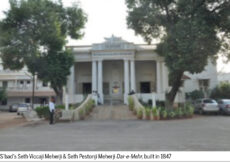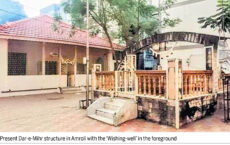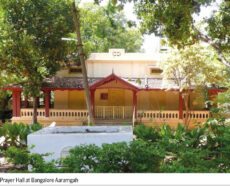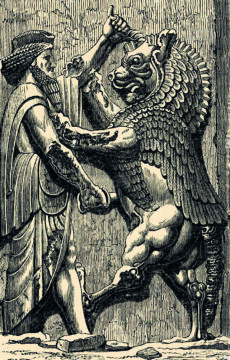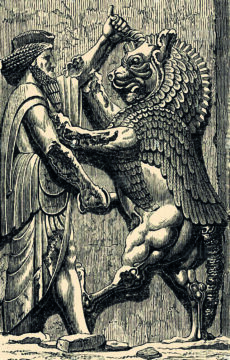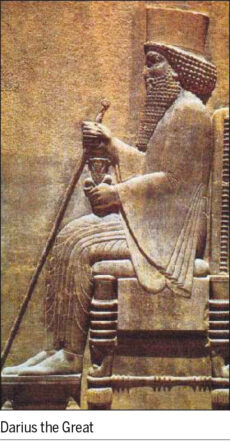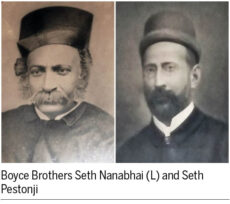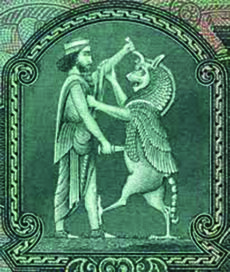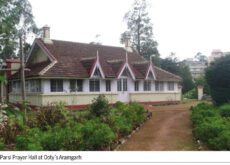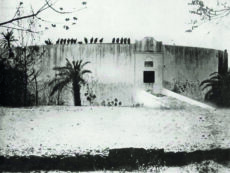– Adil J. Govadia – East India Company, which began developing Bombay in the 18th century, invited Parsis to the city from Navsari and Surat to mainly work as interpreters. They took to Parsis essentially because of their flair for spoken languages like English, French and Portuguese, often addressing them as ‘Dou-bhashas’, meaning those who know […]
Tag: Adil Govadia
Parsi Sportsmen: A Prodigious Past, Hopeful Future
Historically, the microscopic Parsi community in India has always regarded physical recreation as the most important form of bodily fitness. Their inborn talent for sports and games has often led them to the maidans and gymkhanas across the country where they trained and excelled in various sporting activities. Parsis were the first in India to […]
The Remarkable History Of Amroli’s Seth Kanjibhai Dorabji Mithaiwala Adarian
Adil J. Govadia Recently, in mid-January 2025, my wife and I visited a 222-year-old Adarian Saheb in Amroli village, situated 12 kms from Surat railway station. The antiquated structure is extremely simple, devoid of outward trappings of a typical Dar-e-Mehr, almost passing as a private residential bungalow. The access to the Dar-e-Mehr is through a […]
The History Of Parsi Settlement In Bangalore
Adil J. Govadia The exact historical data of Parsi arrival in Mysore or Bangalore remains uncertain as most of the available data is oral and not documented. Only in 1933 was an attempt made by Seth Faramji Cawasji Shroff to chronicle the outlines of Parsi relocation to Bangalore, in his book titled ‘Bangalore-ni Parsi Aaramgah-ni […]
Spenta And Angra Mainyu: Twin Spirits Of Creation (Part II)
Adil J. Govadia As explained earlier, Spenta and Angra are the two impersonal and universally opposing primeval spirits or Minos (Shaktis), while man’s endeavour is to convert his Angra-tainted Urvan (soul) into the Spenta-enlightened spiritual light of Wisdom. Thus, over several rebirths, man learns from experience and wisdom to practice Humata (good thoughts), Hukhta (good […]
Spenta And Angra Mainyu: Twin Spirits Of Creation (Part I)
Adil J. Govadia It is said that life is a school where civilizations have learnt to evolve and unfold, consciously or unconsciously. And though the lights of heart, mind and bodily perceptions are luminous, their glow relatively is dim as compared to the radiance of the soul which is intensely brilliant due the acquired wisdom […]
A Glimpse Into The Great Zoroastrian History
Adil J. Govadia History generally is defined as the ‘collective memories of a society’. The history of Parsi-Zoroastrians India is often debated. The narrative of the preservation of their religious identity as also the courageous voyage from Iran to India, is recognized and recorded… like the historical footprints of India’s early Parsi-Zoroastrian settlers, those little […]
Parsi Settlements In Hubli And Belgaum
Within a radius of 150 sq. kms of Belgaum (Karnataka), there are six Parsi Aaramgahs and two fully functional Dar-e-Mehrs with residential quarters for priests and sprawling open spaces and gardens. In the early 20th century, the townships of Hubli, Belgaum, Dharwad, Gadag, Gulbarga and Bijapur had a good Parsi population, with an Aaramgah in […]
Allegorical Understanding Of Religious Scriptures
Adil J. Govadia Ancient religions are known to use allegory* as a powerful literary tool to convey complex ideas and ethical lessons through exemplary representations. (An allegory is a parable that displays a deeper moral lesson like the ‘Hare and Tortoise’ story which underlines a hidden message – ‘slow and steady wins the race’!) By […]
The Parsi Migration: Nilgiri Hills And Mysore
The three Nilgiris townships of Ooty, Coonoor and Wellington (in Tamil Nadu), collectively make a picturesque hill-station, first discovered in the early 1820s. Seth Pestonji Nusserwanji Bottlewalla, the first Parsi to reach Ooty in 1829, along with brothers Jehangirji and Framji, established a general provision store, ‘Europe Shop’, which catered to the British Army. In […]
An Intriguing History Of Parsi Settlement In Madras
In 1791-92, after Tipu Sultan’s invasion of Malabar region, Seth Hirjee Manekji Kharas first arrived in Tellicherry to explore business opportunities. He purchased a piece of land named ‘Pimole Mala’, renamed ‘Parsi Kannu’, on which was built a Parsi Aaramgah. Later, in 1797, Seth Bomanji Ratanji Captain built a Prayer Hall on the same premises […]
